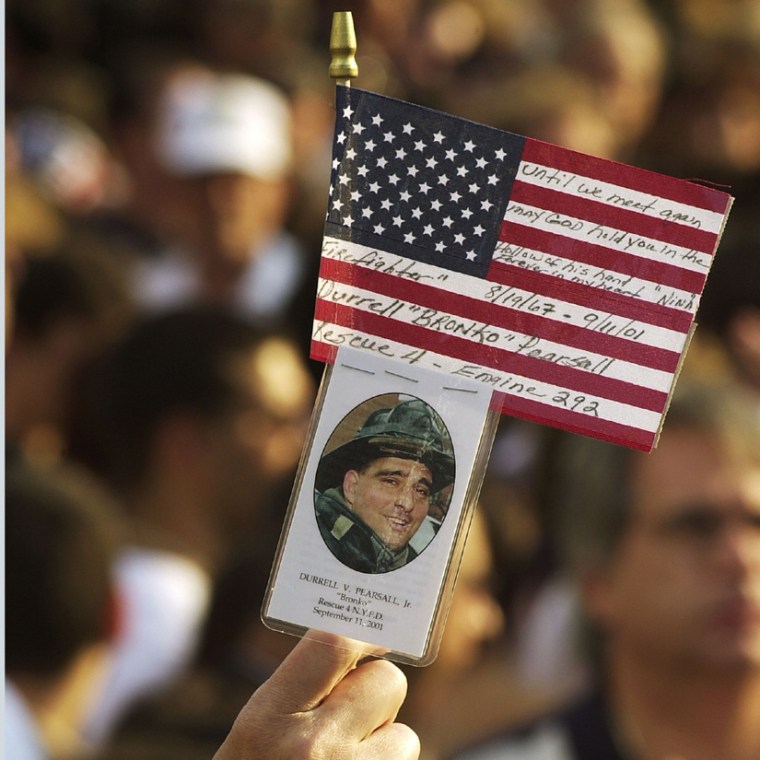Ten years later, many Americans still remember clearly the unfolding of horrible events on Sept. 11, 2001. Planes flying into the World Trade Center; people jumping out of windows more than 100 stories high; thousands of civilians fleeing out of downtown Manhattan by foot. These kinds of images are hard to forget.
On the other hand, most people who were glued to the news for days in 2001 now think only rarely about that horrifying day. And people who were far from the scene or who were very young at the time may not know many details about the terrorist attacks at all.
It is a classic phenomenon that has happened again and again over years of war and trauma, historians say. In the midst of tragic events, people are sure that the world will never be the same again. But as years and generations pass, daily life goes back to normal for most people. Meanwhile, political and cultural influences gradually morph our memories of history for decades to come.
For now, as conflicts in Iraq and Afghanistan continue, it is too soon to know how 9/11 will be remembered or even if future generations will always commemorate the date.
"We can put aside political disagreements for a day when names are read on 9/11 and then we go back to 364 days a year of haggling over whether we should've done this or that," said Gavriel Rosenfeld, a historian at Fairfield University in Connecticut. "It sums up the basic point that the whole story of 9/11 hasn't been written yet because we're still in the midst of it."
Still, history suggests that — for better and for worse — a cultural narrative of hope and optimism will eventually prevail, said Alvin Rosenfeld, author of "The End of the Holocaust" and a professor of English and Jewish Studies at Indiana University, Bloomington, who is also Gavriel Rosenfeld's father.
As an example, he pointed to Anne Frank. Although she suffered terribly as a girl during the Holocaust, every American movie and play that was eventually made about her focused on one unusually cheerful line in her diary: "Despite everything, I still believe people are really good at heart."
"If it is at all analogous to how Holocaust memory has evolved in a collective sense, we will remember, but time tends to take the sting out of it," Alvin Rosenfeld said. "Americans tend to like things to turn up at the end rather than down. We like to have happy endings. We put a premium on hope. We don't like to linger too long in the past, especially if the past is a gruesome past, as the Holocaust and 9/11 were."
There is no consensus about whether the American urge to turn rubble into hope is a good thing. Some experts see the attitude as naïve. Others see it as a helping coping mechanism.
But our country's optimistic nature clearly points to the difference between history and memory. And the events of Sept. 11, 2001, may have introduced a spike into that eternally sunny disposition, said Gavriel Rosenfeld.
He mentioned recent reconsiderations of World War II, which has long been remembered as "the good war." Now, many experts are starting to question the truth behind that term, arguing that we would've been much better off never joining the war in the first place.
"I think 9/11 was a turning point in how we reassess certain aspects of history," said Gavriel Rosenfeld. "Ever since 9/11, there has been a new skepticism about America's involvement in world affairs and its use of political power to achieve goals."
Holocaust studies offer other insights, too, into how 9/11 might be remembered or forgotten 80 years from now. Both events were characterized by shocking and unthinkable acts and the tragic loss of far too many innocent lives. But compared to the nearly 3,000 people who died on Sept. 11 10 years ago, the Holocaust happened on a much larger scale, killing close to 6 million Jews over more than a decade.
And still, many details of those horrifying years remain unknown and unremembered to most people, said Lawrence Langer, author of "Holocaust Testimonies: The Ruins of Memory."
In one of the major atrocities of the Holocaust in 1941, for example, more than 33,000 Jews were shot and buried in mass graves over two days and two nights at Babi Yar, in the Ukraine. Yet, very few people today know about the incident. Depending on how 9/11 ends up fitting into a larger political and historical context, that terrible day may fade in our collective memory as well.
It's essential that we strive to remember past atrocities, Langer said, and not because learning about them will prevent future atrocities from happening. Instead, the acts of listening, learning and remembering are important steps toward developing empathy for other individuals and cultures.
Preserving memories of traumatic events also helps validate the people who were personally terrorized by them.
"Knowing what happened in history is part of what it means to be a civilized and educated person," said Langer, who has interviewed more than 80 Holocaust survivors and watched interviews with 100 more.
"The people I interview tell stories because they want the world to know what happened to them," he said. "The fact that someone knows and cares about knowing verifies their experience. It doesn't give it meaning. But if no one cared about knowing, you're reduced to oblivion. If we don't pay attention to what happened on 9/11, it may as well not have happened"
